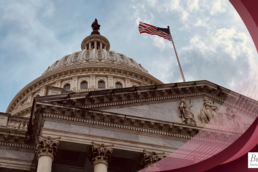Are you planning to visit the U.S. for a vacation, to attend a seminar or to visit relatives? If so, there are specific immigration provisions you should be aware of.
Qualifying for a Visa
Applicants for visitor visas must show that they qualify under provisions of the Immigration and Nationality Act. The presumption in the law is that every visitor visa applicant is an intending immigrant. Therefore, applicants for visitor visas must overcome this presumption by demonstrating that:
- The purpose of their trip is to enter the U.S. for business, pleasure, or medical treatment;
- They plan to remain for a specific, limited period; and
- They have a residence outside the U.S. as well as other binding ties which will insure their return abroad at the end of the visit.
Alien truck drivers may qualify for admission as B-1 visitors for business to pick up or deliver cargo traveling in the stream of international commerce.
Passing through a U.S. Port of Entry
Applicants should be aware that a visa does not guarantee entry into the United States. Immigration authorities have the power to deny admission, and determine the period for which the bearer of a visitor visa is authorized to remain in the United States.
At the port of entry, an Immigration Official must authorize the traveler’s admission to the U.S. If authorized, the Official will stamp the the traveler’s Form I-94, thereby indicating the length of stay permitted. Those visitors who wish to stay beyond the time indicated on their Form I-94 must contact USCIS to request an extension of stay. The decision to grant or deny a request for extension of stay is made solely by USCIS.
Information courtesy of the U.S. Citizenship & Immigration Services
Page Summary: Immigration Services for Canadians including B-1/B-2 visas
Related Posts
January 29, 2026
Webinar “Head South: How to Invest in the U.S.”
Ready to have Berardi on your side?
Whether you’re a business looking to hire or a professional hoping to relocate, immigration law can be complicated. But you don’t have to do it alone. Put our experience to work for you.


